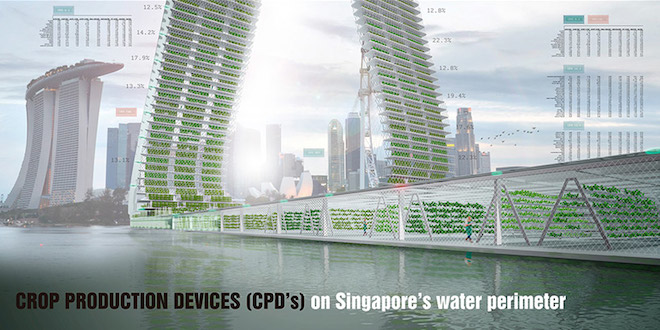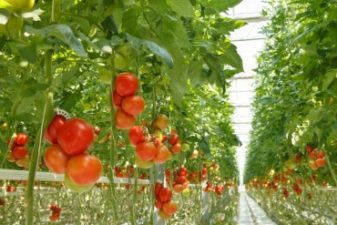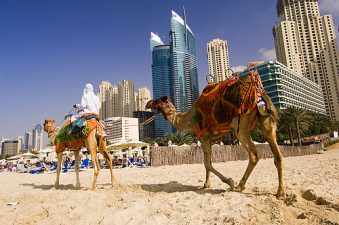Forward Thinking Architecture has designed floating farms for Singapore, a country that shares many of the problems we have in the Middle East – food insecurity, lack of land, and a rapidly growing population. We think this design might be appropriate for our region as well.
A subsidiary of JAPA, an ideas lab, Forward Thinking Architecture proposes that responsive floating agriculture can ease both present and looming food shortages.
Building on existing floating fish farms in Singapore, the concept comprises networked floating structures with a looping configuration that are equipped with rotating racks full of lettuce, broccoli, cabbage, spinach and other crops that can be grown year-round.
Related: flux home device makes is easy for anyone to grow food using hydroponics
The loop design helps to maximize the amount of sunlight that is available and creates an appealing aesthetic that won’t deter from the surrounding landscape. This is important because the farms will be set up adjacent to the city on waterways, where people often congregate during their leisure hours.
And then there’s the “responsive” aspect of the design.
Neighborhoods in the city can each ‘order’ precisely what they need by communicating their requirements via a tech layer that crowns each floating farm. This not only helps to reduce food waste, but also reduces carbon dioxide emissions associated with food miles (how far food has to travel) and imports.
Using aquaponic and hydroponic systems, these floating farms also help to conserve water – as most vertical growing systems do, although being outside does increase the likelihood of evaporation.
One concern we might have is the extent to which air pollution, which grows alongside the population, would affect the quality of the food being grown. It’s not completely obvious whether the design team have included some kind of mechanism that would filter the air to avoid contaminating the plants.
Otherwise – great design. What do our readers think? Is this an appropriate solution to our food, water, and land shortages?
:: Designboom







